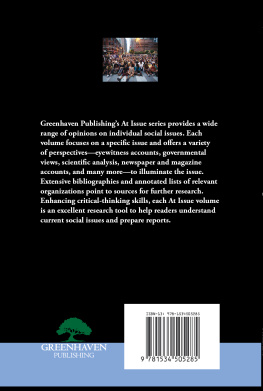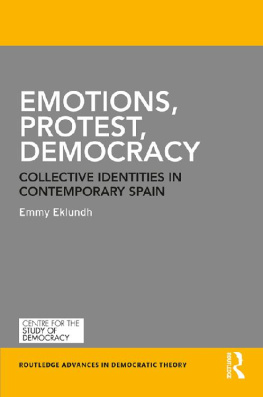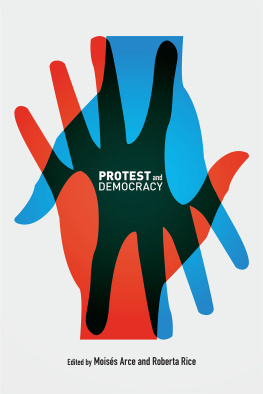First published 2001 by Ashgate Publishing
Reissued 2018 by Routledge
2 Park Square, Milton Park, Abingdon, Oxon 0X14 4RN
711 Third Avenue, New York, NY 10017, USA
Routledge is an imprint of the Taylor & Francis Group, an informa business
Copyright Abby Peterson 2001
All rights reserved. No part of this book may be reprinted or reproduced or utilised in any form or by any electronic, mechanical, or other means, now known or hereafter invented, including photocopying and recording, or in any information storage or retrieval system, without permission in writing from the publishers.
Notice:
Product or corporate names may be trademarks or registered trademarks, and are used only for identification and explanation without intent to infringe.
Publishers Note
The publisher has gone to great lengths to ensure the quality of this reprint but points out that some imperfections in the original copies may be apparent.
Disclaimer
The publisher has made every effort to trace copyright holders and welcomes correspondence from those they have been unable to contact.
A Library of Congress record exists under LC control number: 2001091688
ISBN 13: 978-1-138-72924-7 (hbk)
ISBN 13: 978-1-315-18999-4 (ebk)
Contents
Introduction
A new type of political violence among young people has begun to gain momentum throughout Europe. We are witnessing a wave of militant political actions, which has even entered the Swedish alternative political culture. For example, young racist and antiracist activists are confronting each other (and often the police riot squads) on the streets of Sweden, and the spectacles of the confrontations are welding them together in respective groups. (Peterson, 1995 and 1997) Neo-fascist youth groups have carried out arson attacks against refugee centres throughout Sweden; neo-nazi youth have also claimed responsibility for the murders of a number of immigrant youth as well as homosexuals. Young environmental and animal rights activists are increasingly using violent means to convey their moral outrage over companies, which they regard as a danger to the environment and animals. For example, in Sweden, militant vegetarian and vegan youth have burned down hotdog stands and refrigeration trucks, and have carried out arson attacks on meatpacking firms and retailers. Militant green youth are organising for struggle against the construction of the resund Bridge and the Dennis package in Stockholm. A group of young people from rebro demonstrated their dissatisfaction with the European Union referendum and shot police with slingshots from an occupied building. These are examples of militant youth groups with a political message, both from the far left and the far right.
The supremacy of praxis, a doctrine of the primacy of direct militant action developed by Andreas Baader and Ulrike Meinhof, Rote Arm activists in the early 1970s, finds resonance in a new militant political culture emerging in Sweden. Baader and Meinhof argued that their cause could not be expressed in words, rather it was constituted through their actions. RAF grounded its action doctrine in a notion borrowed from Italian theorist and activist Antonio Gramsci conditio sine qua non the strong will as the motor in the revolutionary process whereby subjectivity becomes praxis. In this RAF interpretation of Gramsci, it appears to have been the strong will of Andreas Baader, which functioned as the motor in the revolutionary process. Contemporary militant activists have more or less left this reliance upon the force of an individual charismatic leader(s) as the initiator of the revolutionary process, preferring to lay focus upon the process itself, which constructs and stark enhances the meaning of the militant Group (subjectivity becomes praxis). Nevertheless, aside from the force of individual personalities emphasised by their historical antecedents in RAF, the underlying notion of actions defining the group lies at the basis for even todays militant groups. Militant activists today are putting deeds before words and are claiming that it always pays to resist. And resisting they are, employing increasingly violent enactments in order to extend their political messages to the polity. In this book we will investigate this new wave of militancy which has infiltrated even the historically non-violent alternative political culture which once dominated in Sweden.
Firstly, militancy is defined throughout this book with an extended notion of violence. Militant action groups/action networks stage enactments of violence self-directed, other-directed, and/or property directed which are anticipated, threatened or actual. With this extended notion of violent enactments which includes often expressly Gandhian principles of non-violence, for example militant activists putting their lives on the line for their cause or militant groups symbolically disarming the nose-cone of a fighter jet, we are better able to capture the breadth of this new wave of political militancy emerging. Particularly left-wing militants in Sweden have tended to shy away from other-directed enactments of violence, preferring tactics which are directed against property, and increasingly, to innovative tactics which are self-directed violent enactments. These violent enactments broadcast to the polity the bodily self-determination and commitment to their struggle on the part of these activists. More and more it is what the activists do which makes them militant and their politics radical, not what they say.
Secondly, while more traditional social movement factions and networks depend upon their effectiveness on the mobilisation of action that require participants to stop everyday routines and step outside of their everyday lives, militant action groups/action networks exercise their power more fundamentally by fostering historical action emotionally and corporeally within the framework of everyday roles and relationships. (Cf. Flacks, 1988) The militant social movement activists we are focussing upon in this book intimately integrate their political practices of protest within the framework of their everyday roles and relationships protest is my whole life, as Laura, a 16 year-old Swedish Animal Liberation Front activist, expressed her political engagement and commitment for animals.
Unlike militant protests that solely lodge claims to entrance into the polity, the moral and emotional militant resistance communities articulate their political beliefs within everyday life and hence are semiprivate performances of their political identity(ies). The overtly political performances of militant activists are, nevertheless, inseparable from the processes of articulation of the militant resistance community in sites of collective identity construction submerged within everyday life. Militant political protest acquires its force, its creativity, its subversiveness, and its credibility, through its sub-political articulation in everyday life. The militant practices what he/she preaches.












